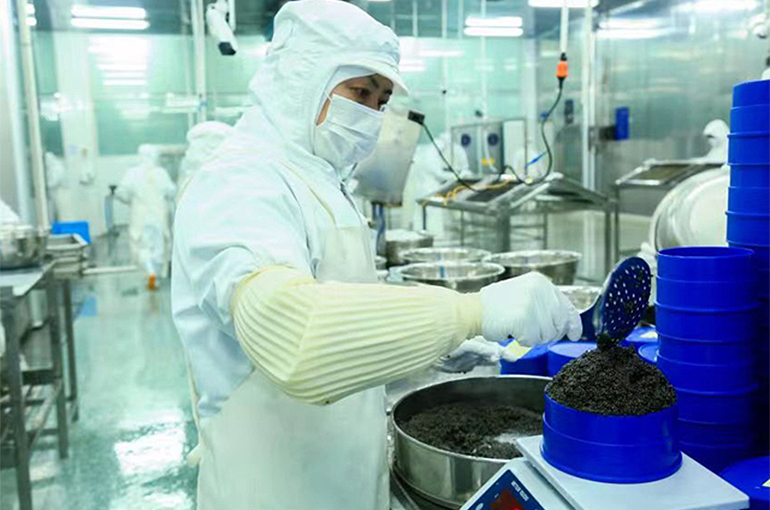 Village Producer of One-Third of World’s Caviar Eyes Bigger Output
Village Producer of One-Third of World’s Caviar Eyes Bigger Output(Yicai) Jan. 26 -- China's Xunlong Sci-Tech, which produces a third of global caviar, is planning to multiply its output in the next five years.
Market demand is far from saturation, Xu Pengfei, board secretary of Xunlong told Yicai. The Hangzhou-based company has Asia's largest sturgeon farm in eastern China's Quzhou. Only this type of fish roe is technically considered caviar. China is the biggest global producer and exporter of such an expensive delicacy, accounting for over 60 percent of the global market share, per public data.
The supply-demand gap of caviar is expected to widen by 10 to 20 percent each year, Xu said. This is why the firm intends to add 10,000 tons of sturgeons in the next five years. The company has started building another facility in Sichuan province’s Ya’an to expand production and the first phase comprises over 13.3 hectares of land.
The global caviar farming business took off less than two decades ago when wild caviar was banned worldwide due to depleted stock. But the road has been rocky for the Chinese giant of “black gold.”
Xunlong's founder Wang Bin began farming sturgeons in Beijing in 1998 and relocated his facility to Hangzhou’s Qiandao Lake in 2003. But in the summer of 2005, a great number of fish died because of high water temperatures. It took him until 2009 to refine optimal water conditions, and after that, he established a facility in Quzhou.
It took Xunlong several years to gain its first export order and even then, more work needed to be done. After several rejections of orders, German flag carrier Lufthansa Group picked Xunlong as its exclusive global supplier of caviar. Fame based on improved quality paid off as other airlines, such as Cathay Pacific and Singapore Airlines, followed suit and placed their orders.
Next, Xunlong is shifting its focus to the domestic market. Board Secretary Xu said that sales growth in China is expected to exceed 40 percent in years to come.
The firm is also breathing life into the rural economy. Xunlong buys sturgeons from local farmers and offers them guidance and training. The firm has created 50 to 60 jobs in the village and increased over 150 farmers’ annual incomes by more than CNY6 million (USD837,730), Xu added.
Editor: Emmi Laine